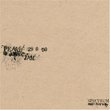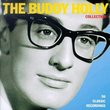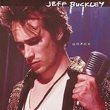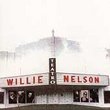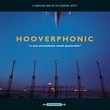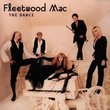| All Artists: Gil Scott-Heron Title: Evolution & Flashback: Very Best of Members Wishing: 4 Total Copies: 0 Label: RCA Original Release Date: 2/9/1999 Release Date: 2/9/1999 Genres: International Music, Jazz, Pop, Rap & Hip-Hop Styles: Jazz Fusion, Vocal Jazz, Vocal Pop, Old School, Pop Rap Number of Discs: 1 SwapaCD Credits: 1 UPC: 090266314126 |
Search - Gil Scott-Heron :: Evolution & Flashback: Very Best of
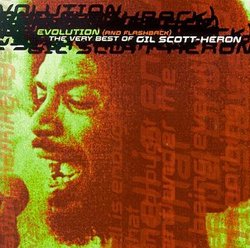 | Gil Scott-Heron Evolution & Flashback: Very Best of Genres: International Music, Jazz, Pop, Rap & Hip-Hop
No artist articulated the pride, pain, and passion of African Americans in the post-civil rights era better than singer, poet, author, pianist, and composer Gil Scott-Heron. These 15 selections from his historic Flying Dut... more » |
Larger Image |
CD DetailsSynopsis
Amazon.com No artist articulated the pride, pain, and passion of African Americans in the post-civil rights era better than singer, poet, author, pianist, and composer Gil Scott-Heron. These 15 selections from his historic Flying Dutchman recordings from 1970 to 1972 capture the sting of his social commentary and scope of his artistic dimension. The Chicago-born, Tennessee-reared, New York City-bred Scott-Heron drew equally from the blues, gospel, Latin, funk, and soul and created beautiful art out of the angst of those turbulent times. Together with lifelong partner Brian Jackson on keyboards, and occasionally backed by flutist Hubert Laws and bassist Ron Carter, Scott-Heron spoke about the ills and illuminations of black life: from the conga-pulsed identity issues of "Paint in Black" and the title cut, to the vast economic gap between white and black he so eloquently expressed on "Whitey on the Moon." "Small Talk at 125th Street" paints a nuanced picture of the famous Harlem street, and "Home Is Where the Hatred Is," with its Fender Rhodes chords and soulful and cinematic sound, and "The Revolution Will Not Be Televised" not only prophesized America's future race and class problems, but also foreshadowed the rap and hip-hop movement, which Gil Scott-Heron birthed through his intensity and honesty. --Eugene Holley Jr. Similar CDs
Similarly Requested CDs
|
CD ReviewsThis CD is REAL Ifriqiya | Washington, DC | 10/26/2001 (5 out of 5 stars) "I am in my early thirties and I was a child when Gil Scott was laying down these lyrics/poems. For the Generation Y'ers out there, particularly African-Americans who were not even born when these tracks were recorded, you need to get this album. Why? Because many of you have been anesthized by the consumerism and materialism of the post-soul era and really don't know the hard times and despair with no social safety net of the late 60's and early 70's that Gil Scott is describing on these tracks. The despair and hardship of urban life or in some urban communities that is exploited and commercialized in so-called gangsta rap had its origins in the policies of benign neglect that were implemented in urban areas in the late 60's and early 70's. Gil Scott is giving you that realness with out the over the top violence, drug abuse-drug dealing and mysogny of today's "reality" artists. Two of my favorite tracks are:"Ain't nothing new" and "Enough". "Ain't nothing new" deals with how Black culture has been ripped off by non-black artists who went off and made millions while their Black patrons got jerked. Sounds familiar? Hence the title:"Ain't nothing new". The track "Enough" is just a vent of a man who just had enough of this society's abuse and now that man is telling this society what he thinks. I know that this is a stretch, but you can almost say that "Enough" is Gil Scott's Post-word to the books "Invisible Man" and "Ex-biograghy of a Colored Man". Get the album. You'll love it. You will be informed and not just entertained." Before there was rap, there was Gil Scott-Heron John Alapick | Wilkes-Barre, PA United States | 12/31/2003 (5 out of 5 stars) "Gil Scott-Heron was truly an artist who was ahead of his time. Evolution (And Flashback) is a compilation of tracks from his first three albums. After those albums, actually starting with his 3rd album Free Will, he'd go into a direction more based on jazz and funk. But his early work is truly revolutionary and would become influential several years later for highly political artists such as Public Enemy and Rage Against The Machine. Many of the tracks here just consist of Scott-Heron's beat poetry over a set of bongos. His lyrics and delivery are biting and go right for the throat, particularly on the tracks "Whitey On The Moon", "Ain't No New Thing", "The King Alfred Plan", "Evolution (And Flashback)", and "Enough", which all deal with the racism which was still very prevalent in this country at the time. "No Knock" and "Small Talk at 125th & Lenox" are also strong tracks with the former discussing a new law at the time which gave police the right to enter one's property without warning. Many of the other tracks, such as "Who'll Pay Reparations For My Soul", "The Vulture", "Home Is Where The Hatred Is", and "Get Out Of The Ghetto Blues" continue in a similar lyrical path, albeit not as militant, and are backed by the stellar musicianship of long-time collaborator Brian Jackson. "Free Will" is also a very strong track driven by its jazzy bass line and excellent flute solo. Finally, "The Revolution Will Not Be Televised" with its political lyrics and its funky bass line would influence countless rap acts several years later. Highly recommended, particularly to fans of music which discusses social issues." Essential RogerOutWest | San Mateo, CA USA | 10/10/2006 (5 out of 5 stars) "Before there was rap, there was Gil Scott-Heron. Before there was techno, there was Gil Scott-Heron. Before there was jazz-rock, there was Gil Scott-Heron. After 6 years of George Bush, where are you Gill Scott-Heron?
We need you now more than ever!" |

 Track Listings (15) - Disc #1
Track Listings (15) - Disc #1

